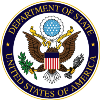Weaving an International Response to a Transnational Problem in the Hub of Global Diplomacy
By: Ambassador Luis Arreaga, Principal Deputy Assistant Secretary of State in the Bureau of International Narcotics and Law Enforcement Affairs at the U.S. Department of State
I’m writing this from Vienna, Austria, which for decades has been a crossroads of international diplomacy. In 2016, global cooperation based in Vienna focuses on not only traditional “hard security” matters, but on other international challenges such as illicit drugs and the violent criminals that traffic them. As toxic heroin and fentanyl coming across our borders ravage America, now is an opportune time to take up these topics in Vienna.
In what may come as a surprise to many in Europe and elsewhere, the U.S. approach to drugs isn’t just about police and law enforcement. I just recently made this point on behalf of the United States at the Organization for Security and Cooperation in Europe (OSCE), one of the most important international organizations located in Vienna. I talked to our OSCE partners about how the world can — and must — reduce demand for drugs, including through educational programs and public health initiatives. As our knowledge about substance abuse and how to treat it grows, our approach has taken on a heavier public health focus. Internationally, the United States has led the development of a workforce of treatment and prevention professionals; set international standards, including training curricula for professionals; and helped other countries create prevention and treatment programs based on scientific evidence. In Vienna I am asking for the support of other nations in this important work.
At the OSCE, I also focused on the international effort to reduce the supply of drugs, principally through law enforcement cooperation that targets violent, transnational criminals trafficking drugs. Such criminals’ organizations do not respect borders, nor human life. Today the illicit substances they traffic increasingly include opioids, such as heroin, and synthetic drugs, including methamphetamine, fentanyl, and what we call new psychoactive substances (NPS). Fentanyl in particular has been linked to thousands of deaths in the United States. I continue to seek international support for global controls on fentanyl and its analogs, and stronger cooperation against those who produce and sell synthetic drugs.
In Vienna, my goal has been greater international consensus behind united action against common challenges. To achieve this there is no substitute for organizations like the OSCE, for in this globalized world no country, not even the most powerful, can attack transnational threats without the support of partners.
This story was originally published on DipNote, the U.S. Department of State’s Official Blog.
